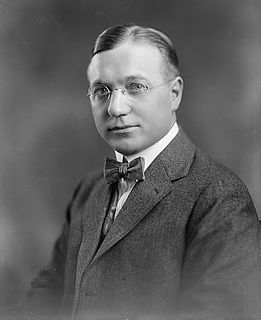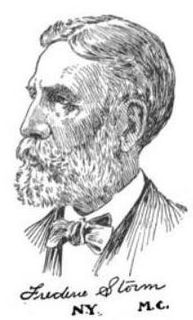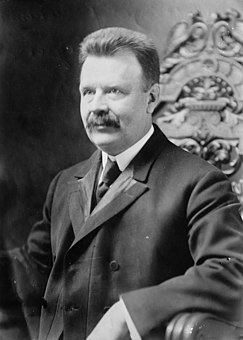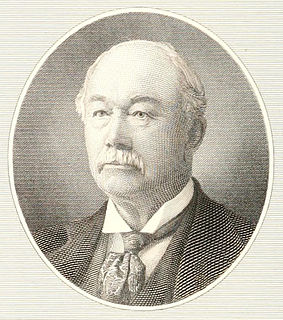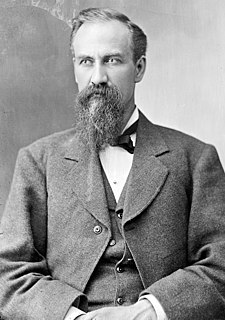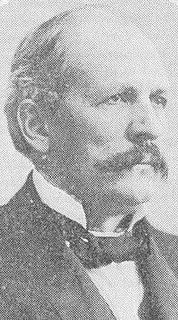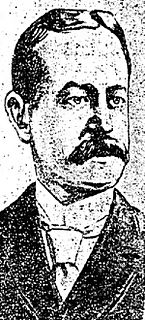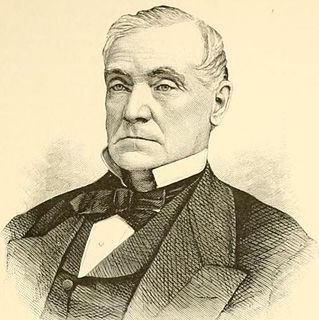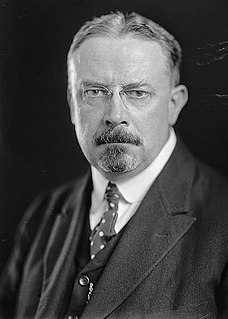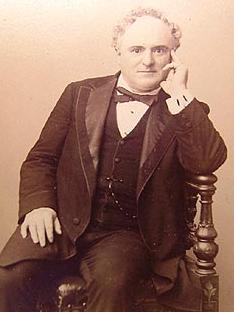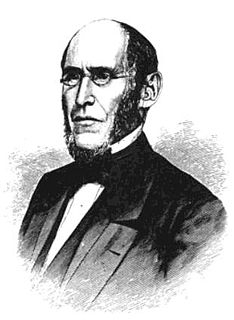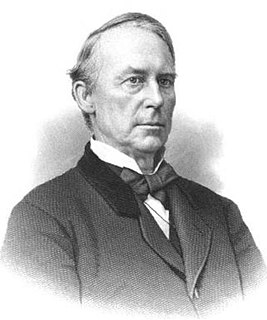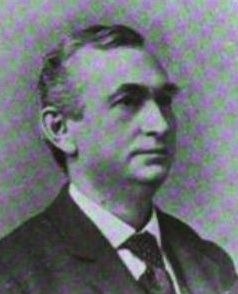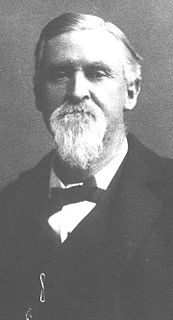John Daniel Lawson (February 18, 1816 – January 24, 1896) was a U.S. Representative from New York.

The United States House of Representatives is the lower chamber of the United States Congress, the Senate being the upper chamber. Together they compose the legislature of the United States.

New York is a state in the Northeastern United States. New York was one of the original thirteen colonies that formed the United States. With an estimated 19.54 million residents in 2018, it is the fourth most populous state. To distinguish the state from the city with the same name, it is sometimes called New York State.
Born in Montgomery, New York, Lawson attended the public schools, moved to New York City and was employed as a clerk in a dry-goods store. He became a successful merchant, and was active in politics as a Republican. Lawson served as a delegate to every Republican state, county, and district convention for thirty years, as well as the national conventions from 1868 to 1892. In 1884 he succeeded Thomas C. Platt as New York's member of the Republican National Committee.

The City of New York, usually called either New York City (NYC) or simply New York (NY), is the most populous city in the United States. With an estimated 2017 population of 8,622,698 distributed over a land area of about 302.6 square miles (784 km2), New York is also the most densely populated major city in the United States. Located at the southern tip of the state of New York, the city is the center of the New York metropolitan area, the largest metropolitan area in the world by urban landmass and one of the world's most populous megacities, with an estimated 20,320,876 people in its 2017 Metropolitan Statistical Area and 23,876,155 residents in its Combined Statistical Area. A global power city, New York City has been described as the cultural, financial, and media capital of the world, and exerts a significant impact upon commerce, entertainment, research, technology, education, politics, tourism, art, fashion, and sports. The city's fast pace has inspired the term New York minute. Home to the headquarters of the United Nations, New York is an important center for international diplomacy.

Thomas Collier Platt was a two-term member of the U.S. House of Representatives (1873–1877) and a three-term U.S. Senator from New York in the years 1881 and 1897–1909. He is best known as the "political boss" of the Republican Party in New York State in the late 19th century and early 20th century. Upon his death, the New York Times stated that "no man ever exercised less influence in the Senate or the House of Representatives than he," but "no man ever exercised more power as a political leader." He considered himself the "political godfather" of many Republican governors of the state, including Theodore Roosevelt.
Lawson was elected as a Republican to the Forty-third Congress (March 4, 1873 – March 3, 1875). After his unsuccessful bid for reelection, he resumed his former business pursuits. He died in New York City on January 24, 1896, and was interred in Green-Wood Cemetery. [1]

The Republican Party, also referred to as the GOP, is one of the two major political parties in the United States; the other is its historic rival, the Democratic Party.

The Forty-third United States Congress was a meeting of the legislative branch of the United States federal government, consisting of the United States Senate and the United States House of Representatives. It met in Washington, D.C. from March 4, 1873, to March 4, 1875, during the fifth and sixth years of Ulysses S. Grant's presidency. The apportionment of seats in the House of Representatives was based on the Ninth Census of the United States in 1870. Both chambers had a Republican majority.

Green-Wood Cemetery is a cemetery in Brooklyn, New York City, founded in 1838 as a rural cemetery. Like other early rural cemeteries, Green-Wood was founded in a time of rapid urbanization when churchyards in New York City were becoming overcrowded.
